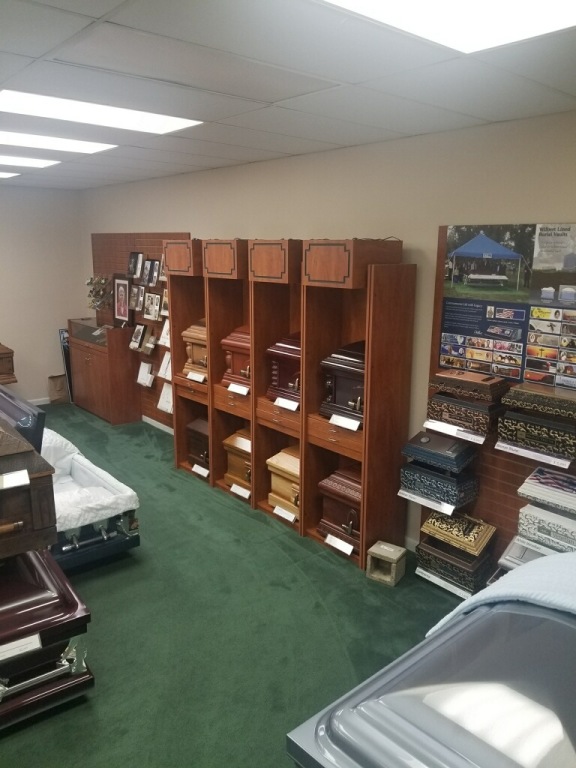Table of Content
The whole aim of the inspection is to identify defects or system issues, which need repair or replacement, to bring the home up to standard. If the inspector finds a deficiency, he might recommend bring in an expert to fully evaluate the problem and provide a reasonable solution. Homebuyers can also conduct a quick personal pre-inspection when they visit a home for sale. If the house has too many obvious deficiencies, homebuyers usually notice them at first sight. A personal inspection saves home buyers both time and money, as they will not waste their resources bidding on a defective or sub-par home.

A certified home inspector will take a close look at all functional aspects of the house to determine its safety as a dwelling. The home inspector will test the operational status of all major systems – plumbing, electrical, heating, and cooling – and check the roof, the foundation, and the home’s exterior. The inspector's job is not to fix or warn you about potential issues but to take note of the house’s current condition at that point in time and any safety or repair concerns. The home inspection is an important part of the homebuying or selling process. If you’re a homebuyer, a home inspection will help protect you against buying a house with significant defects, like a bad foundation or leaky roof. As a home seller, a pre-listing home inspection will help you see all the repairs you’ll need to make before you put it on the market, which helps with a smoother closing and faster sale.
How to Calculate the Square Footage of a House
Like plumbing emergencies, a malfunctioning septic system can spell costly repairs if not caught before you’re under contract. A trained professional will locate and assess the septic tank, sludge layer, and absorption area to ensure all components are in working order and that the tank is the right size for the home. You definitely wouldn’t want to buy a home with a failed septic system, so consider a septic inspection if you’re buying a home with a septic tank. When purchasing a home one of the most important decisions a buyer must make is to get a certified home inspector to perform a through evaluation of the property.

Home inspection includes, and why your inspector might recommend — or you might want — one of these different inspections. This may influence which products we review and write about , but it in no way affects our recommendations or advice, which are grounded in thousands of hours of research. Our partners cannot pay us to guarantee favorable reviews of their products or services. Coverage summaries and descriptions are provided for illustrative purposes only and are subject to the applicable policy terms, limits, conditions, and exclusions. Not all insurance products and services are available in all states.
Termite & Pest Control Inspection
Electrical distribution or lighting equipment in the home remains the 4th leading cause of home fires, according to the National Fire Prevention Association. An electrical inspection goes so far as to check for ungrounded outlets, exposed wiring, spliced wires, improperly modified electrical panels, and other issues that could pose a risk. Radon can be bundled into the cost of a standard home inspection for $90 to $250 on top of the home inspection fee. Radon tests separate from the home inspection average $450 nationwide. Consider asking for a roof certification, a document from a roofing professional that identifies the need for any roof repairs and provides an estimate of the roof’s lifespan.
International Association of Certified Home Inspectors also licenses WDO inspectors. A home inspection includes information on nearly every part of a property, but in some cases you may want separate inspections covering radon, pests, mold and foundation issues. The general inspection is to determine the operational status and function of the home.
What do Home Inspectors Look for?
If not dealt with promptly, these can lead to costly damages like mold or mildew growth after time. The type of inspection you need when buying a home can be simple if you hire a Realtor®. Inspections can vary depending on what you, the buyer or seller, want to check.

A structural engineer can identify these problems, and you may be able to bring these up to the seller to fix during negotiations - saving you time and money by preventing the conditions from worsening. While they could add up in costs and time, specialized home inspections can give you peace of mind in the long run. These types of home inspections help reveal problems in-depth that a general home inspection might only highlight as a possible issue. You can notify the current owners as soon as possible to get the repairs underway in case you want to continue with the home purchase. Addressing these issues early on in the home buying process is key to saving you money down the road. A specialized inspection will usually include items that are not covered in a standard inspection, such as pest issues, mold, radon, lead-based paint, asbestos, sewer and septic systems.
He is an expert on personal finance, corporate finance and real estate and has assisted thousands of clients in meeting their financial goals over his career. Elizabeth Weintraub is a nationally recognized expert in real estate, titles, and escrow. She is a licensed Realtor and broker with more than 40 years of experience in titles and escrow. Her expertise has appeared in the New York Times, Washington Post, CBS Evening News, and HGTV's House Hunters.

Most furnaces must be taken apart to determine the source of the malfunction. The costs of inspections are generally left to the buyer unless they're required by an appraiser in order to get a loan. A general home inspector might see evidence of wood damage and suggest that you call in a pest expert to find out what caused it. These specialists can provide you with different repair options and give you a sense of what the bill might be to remedy the situation. They'll often refer buyers to a specialist to investigate further and fully diagnose the problem when and if they spot something significant, or something that lies outside their scope of expertise. Your home’s electrical system is a vital component of protecting your family.
An electrical inspection can cost a national average of $75 to $125, although some companies offer free basic checkups for residential clients. Dream home in Phoenix, AZto enjoy sunny weather year-round, you can expect to have your air conditioning running day and night, which can easily add to your energy bill. An attic inspection will let you know if there’s sufficient or damaged insulation that needs to be remedied. Moreover, a trained specialist will have the equipment necessary to identify signs of mold or moisture that can compromise the foundation’s integrity. Both of these groups' credentialing programs are accepted by the EPA, which is helpful since not all states license radon inspectors. The state of the soil around the property can play an important role in determining if the home's foundation adequately supports the soil that surrounds it.

Foundation inspection costs vary depending on where you live, but are generally about $500. A professional radon inspector may be able to report results within days of completing a 48-hour test. Alternatively, you can use an off-the-shelf kit to test radon levels yourself, but you'll have to send the device off to a lab and wait to get the results. Home inspectors typically conduct a visual inspection of all parts of the property that are readily accessible. That leaves out anything that's not easily viewed , like some types of pest infestation, as well as any areas that are hard to safely reach .
Every completed home inspection will never come back perfect, but what are the most common home inspection problems? Depending on the age of the home and the size of the house can rely on the issues. Some of the common issues that can occur within the home can be fixed or not. Foundation issues or water draining toward the house are some of the common issues.

A mitigation contractor can test for radon or methane gas and recommend ways to remove it. Qualified formaldehyde inspectors can also determine the presence of unacceptable levels of this colorless and flammable chemical, which is often used in building products. A home inspector might measure the differential temperature reading from an air conditioner or a furnace as low and recommend that the unit be inspected by an HVAC specialist to find out why.

































